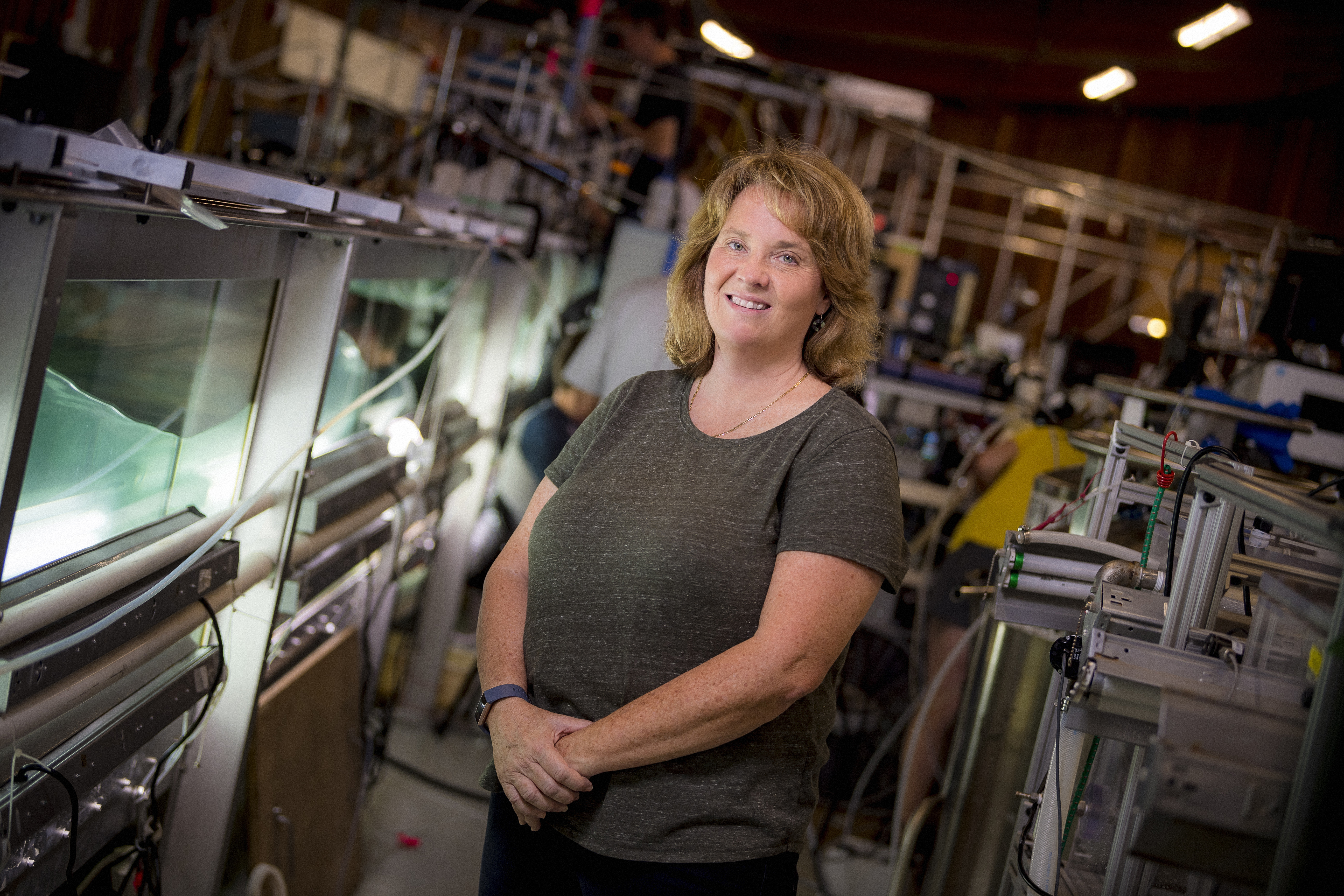About
CAICEBy bringing the ocean and atmosphere into the lab, we are studying the influence of aerosols on the environment.
Message From The Director
CAICE has brought the real-world complexity of the ocean-atmosphere-microbe system to the laboratory. CAICE takes an interdisciplinary approach to perform studies focusing developing the next generation of theoretical and experimental tools needed to predict complex chemical processes at environmental interfaces over a broad range of spatial and temporal scales. We are interested in developing a framework for understanding the impacts and role of aerosol particles in the environment. This requires detailed knowledge about the fundamental chemistry of these complex systems and processes at interfaces. CAICE team members come from a variety of specialties within the field of chemistry, as well as from other environmental and engineering disciplines.
Our current focus is on sea spray aerosol, since oceans cover nearly three-quarters of the Earth and play a vital role in controlling our climate. Sea spray aerosol consists of complex chemical mixtures including sea salt, viruses, bacteria, proteins, and other biological species. In CAICE, we study the impact of aerosol particles and their effects on climate, weather, and human as well as ecosystem health. In CAICE experiments, we use a unique ocean-atmosphere interaction facility at Scripps Institution of Oceanography developed in CAICE to replicate the broad range of conditions occurring in the real world. This unique facility isolates the complex ocean-atmosphere replicates the physical, biological, and chemical processes of the full ocean-atmosphere system in a “closed” system to produce isolated sea spray aerosols with the same composition found over the oceans in the real atmosphere. This unique ability to isolate gases and aerosols emitted from the ocean gives us the ability to determine how biological processes in the ocean influence the atmosphere and environment.
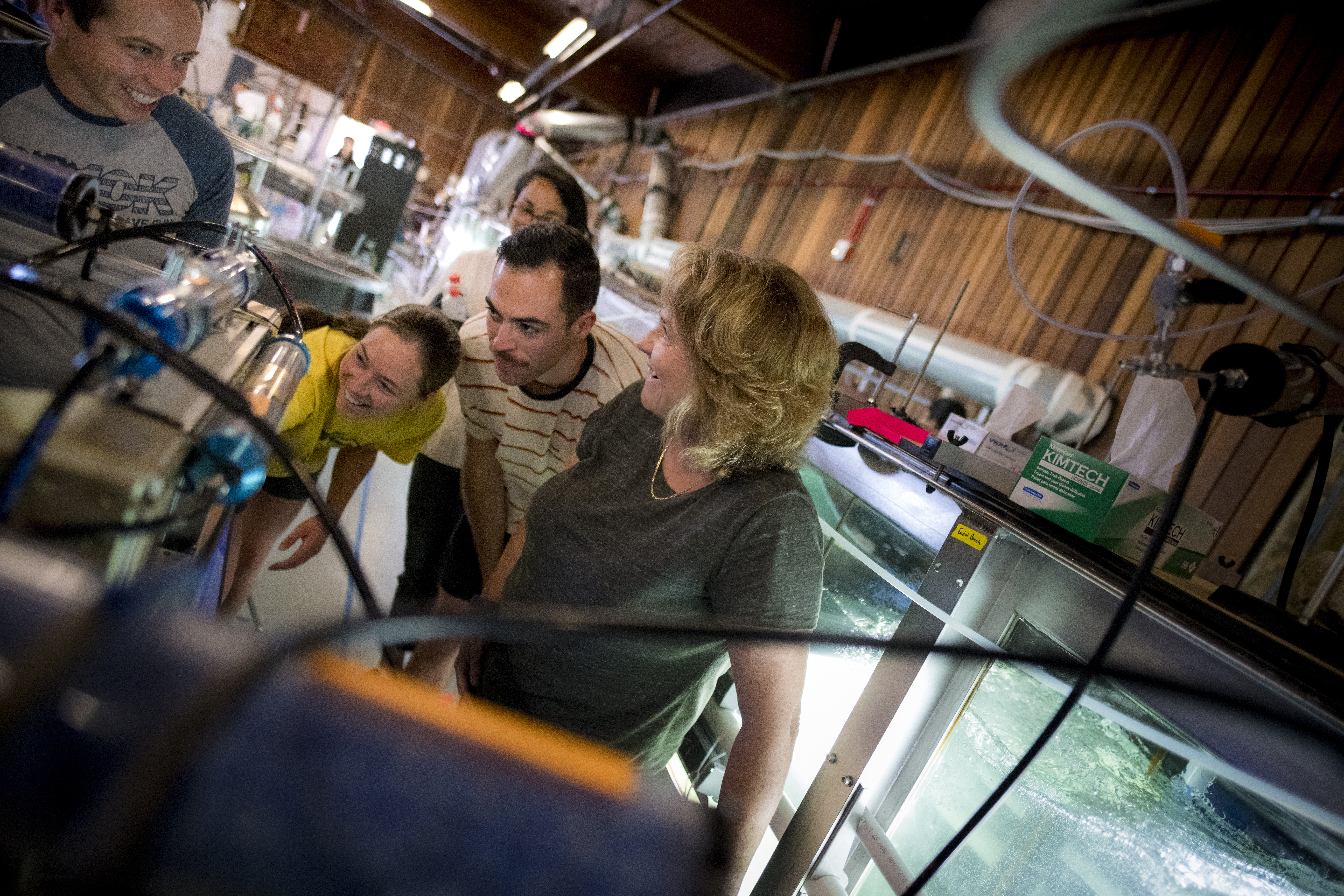
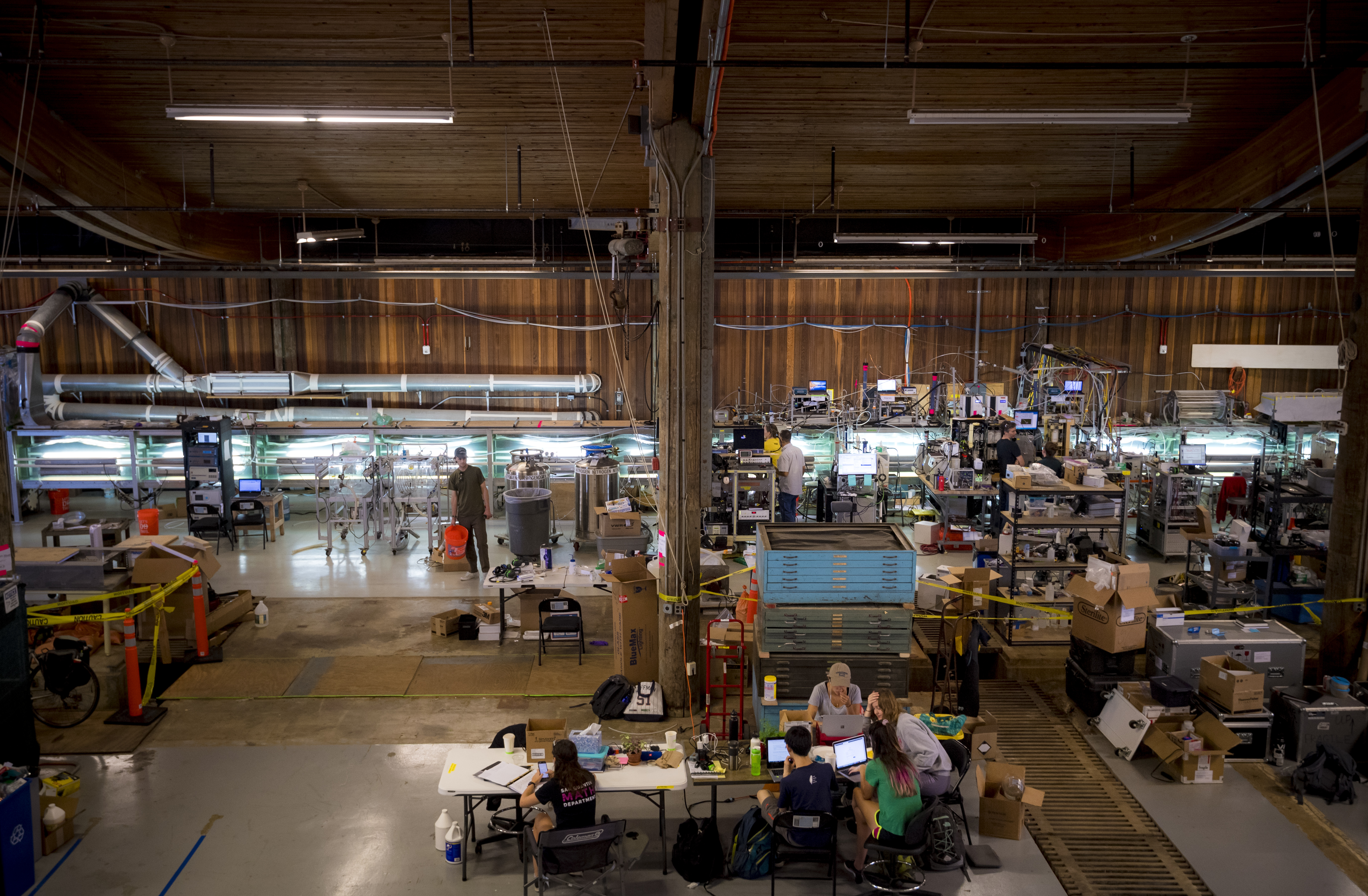
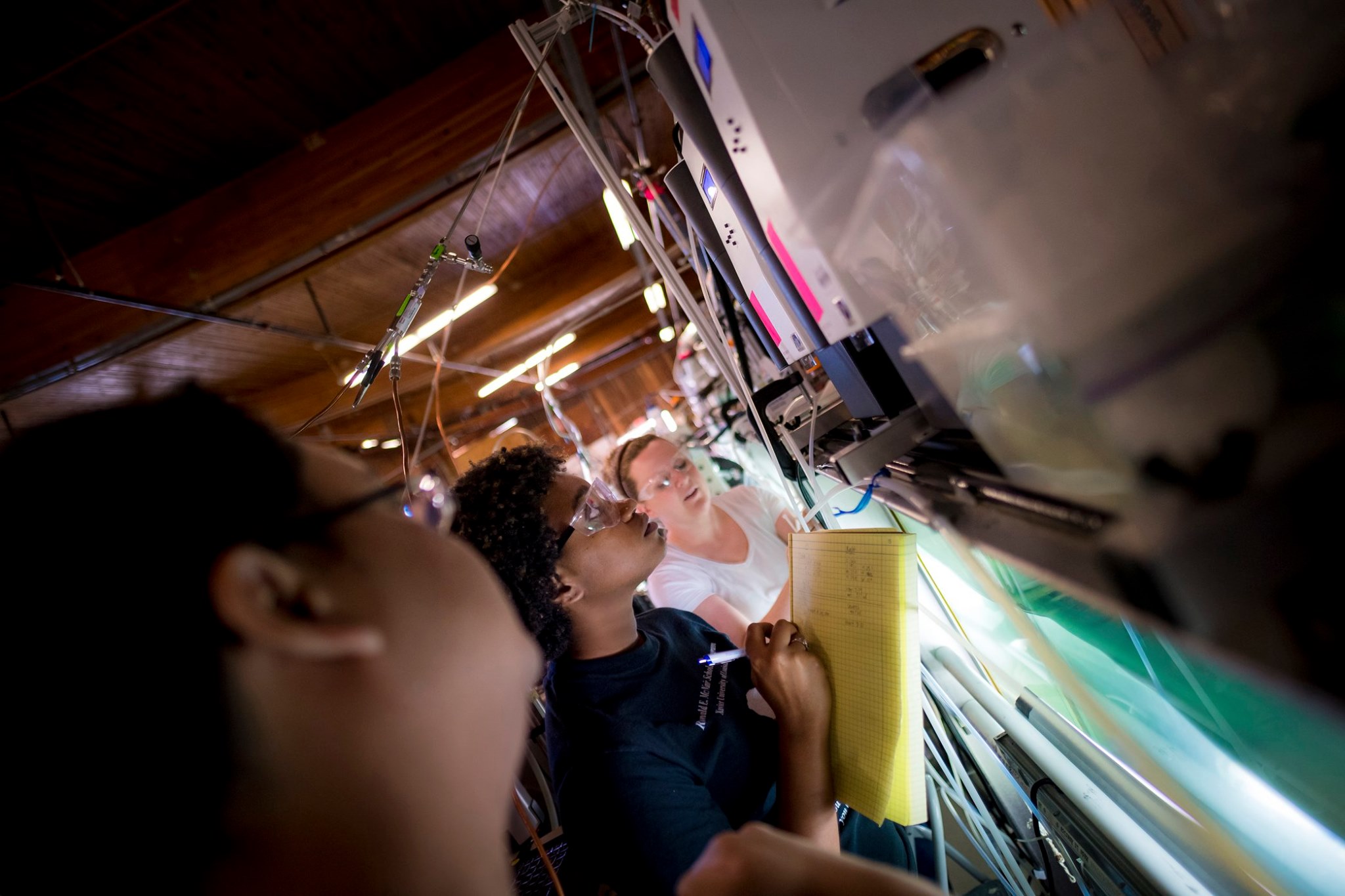
A current challenge in trying to protect our planet involves understanding how much different pollution sources generated by humans are adversely impacting our atmosphere. CAICE is uniquely poised to address this issue by using our state-of-the-art ocean-atmosphere facility to perform detailed reaction studies of chemical species produced both naturally and by humans. These studies will allow us to directly measure reactions in an increasingly complex array of species that will be chosen to simulate atmospheric mixtures. Such studies will utilize an enclosed chamber over the ocean to study futuristic scenarios such as how increased pollutants including ozone and CO2 will impact the coupled ocean-atmosphere system.
A major goal of CAICE is to educate the next generation of scientists with the broad skill set required for tackling complex environmental problems while learning to communicate their science to the public. We aim to inform and educate everyone from students to the general public about key developments in environmental and climate issues. The CAICE educational experience for team members includes being exposed to a broad range of disciplines, including fundamental chemistry, oceanography, marine biology, climate science, and engineering. If you are interested in becoming a member of the CAICE team as an undergraduate, graduate student, or postdoctoral fellow, please contact us and include a current CV as well as a statement of interest.
Photos courtesy of Erik Jepsen/UC San Diego
